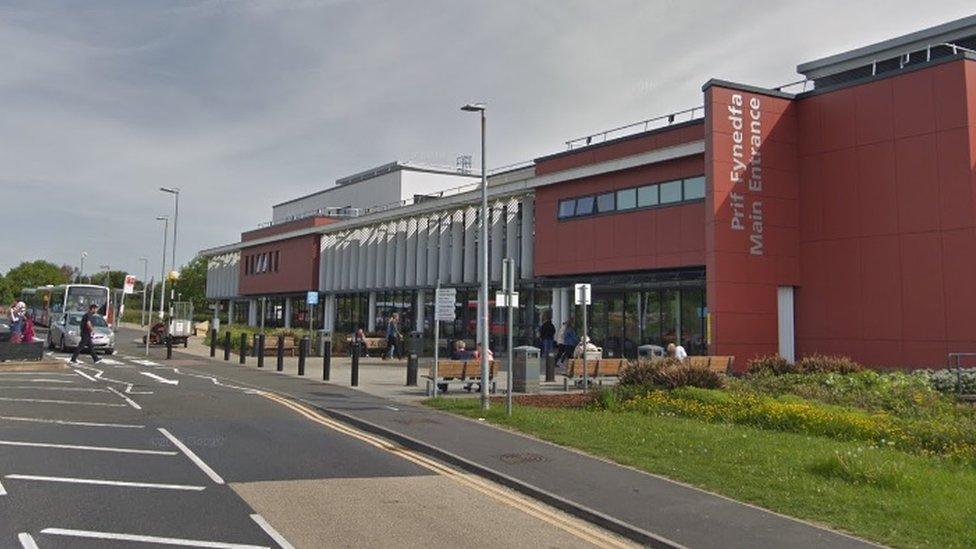MS: Drugs trial hope for multiple sclerosis patients
- Published

Euryl James says even if it does not help her, "hopefully, it would benefit people in the future"
Welsh patients are taking part in a drugs trial aimed at slowing late-stage multiple sclerosis progression.
Experts are looking at how effective a drug is after a smaller study found it may slow down neuronal degeneration.
Euryl James, of Llangennith, Gower, said she got involved as a breakthrough could be life-changing.
A total of 1,000 patients in 20 UK centres are involved in the study, including 25 in Swansea's Morriston Hospital and others in Cardiff.
MS is a neurological disorder, external affecting movement and causes other problems.
Morriston Hospital neurologist Dr Owen Pearson said: "The study aims to find out whether this treatment will slow the death of nerves and therefore slow the progression of the disease."
The first study, which examined MRI data, showed neuronal degeneration - or the rate of "brain shrinkage" - reduced by 40% in those taking statins - a medicine used to lower cholesterol - compared with those on a placebo.

Morriston Hospital has recruited 25 MS patients to take part in the trial
Ms James, who was diagnosed with MS about 15 years ago, was forced to retire from teaching due to health problems caused by the condition.
"It started off with just falling, then my walking really deteriorated," she said.
"When I was asked if I would like to do the trial I jumped at the chance. Hopefully, if it didn't do me any benefit, it would benefit people in the future who had MS.
"I know what the future could hold so I really hope this statin works. That would be a big breakthrough to slow down secondary progressive MS because, at the moment, there is nothing for it."
Most people with MS experience two stages of the disease, with treatment available to control early MS known as relapsing-remitting MS.
There is no treatment for secondary progressive MS but the first trial, showed simvastatin may slow the rate of degeneration of neurones, external.
- Published26 July 2019

- Published11 July 2019

- Published23 June 2019
